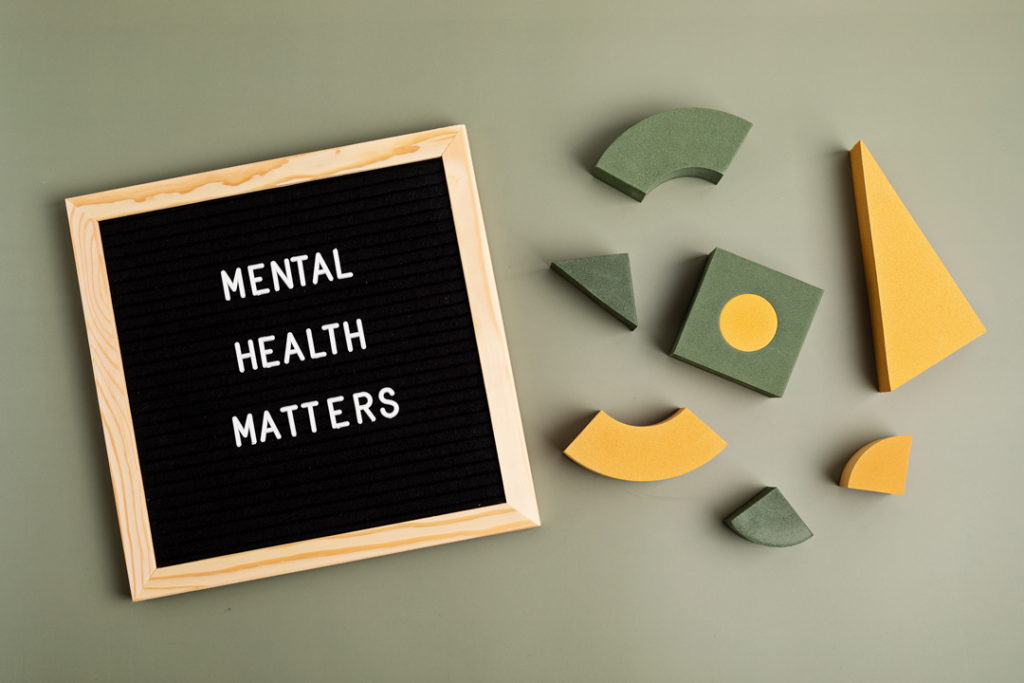
“Strong emotions during the pandemic are normal, but some may find that their reactions grow worse over time. You think you’re doing OK when out of the blue it hits: a vague uneasiness — a nagging awareness that something isn’t right,” writes Kathy Katella in yalemedicine.com. “You’re waking up in the middle of the night or you’re snapping at your spouse. You miss people, but you don’t call them. Fear, loneliness, uncertainty, or some other aspect of the pandemic — and the changes you’ve had to make — is getting to you.”
Katella spoke with a number of Yale doctors for strategies for coping during the pandemic and its related stressors. One thing they all agree is that you are not alone in having these feelings, that it is natural for some to experience symptoms such as sleeplessness, anxiety, depressed mood, and feeling overwhelmed. Here’s what they had to say:
You’re not alone.
“Disasters and public health emergencies, such as the one we are living through right now, can lead to significant disruptions and stress,” says Ariadna Forray, MD, a Yale Medicine psychiatrist. “As a country, we lived through this after 9/11. But, the COVID-19 pandemic presents an ongoing disruption to our everyday lives that has significant implications to our psychological wellbeing. It also puts additional stress on pre-existing social tensions along economic, cultural, and political lines.”
While most people will not develop psychiatric disorders as a result of the stressors related to the pandemic, it is natural for some to experience symptoms such as sleeplessness, anxiety, depressed mood, and feeling overwhelmed, she says.
That’s why mental health providers are concerned about everyone, including those who aren’t in high-risk situations like health care workers or patients who have survived a serious case of COVID-19. In May, the U.S. Census Bureau released data revealing that one-third of Americans reported showing signs of clinical anxiety or depression. The data was based on a survey conducted in a one-week period that drew 42,000 respondents.
“It is critical to pay special attention to how we are feeling and reacting to the situation and really focus on self-care,” says Dr. Forray. “Checking in with yourself on a daily basis is key. Ask yourself, ‘How am I feeling? Am I getting enough sleep? Am I feeling overwhelmed?’ If there is an area that needs to be addressed, identify the people or resources you can turn to.”
How the pandemic is affecting you
It may help for people to recognize that strong emotions aren’t always a sign of a clinical diagnosis—in fact, they are a normal human reaction to acute stress resulting from a major external event, says Steven Marans, MSW, PhD, a child and adult psychoanalyst and chief of the Trauma Section at the Child Study Center.
When people feel threatened or their lives are altered in major, unwanted, and unanticipated ways, communication between the prefrontal cortex (the executive center of the brain) and the amygdala (the emotional processing center) may be disrupted, he says. This leads to the production of stress hormones that can cause distress in the body, as well as the mind. It may include increased heart rate; changes in respiration; muscle tension; irritability; disruptions in sleep, appetite, and concentration; and repetitive thoughts involving danger and helplessness.
Because each of us is in a different situation and our experiences and circumstances vary enormously, he says it may be helpful to identify what is bothering you the most (as opposed to trying to grapple with the pandemic as a whole).
“One common problem we’re hearing about has been the loss of the normal routines of daily life,” says Marans. “Major disruptions like this can undermine our normal capacities to regulate stress.” Loss of social connection is another fear, he says. “Social connectedness is especially important because it can serve as a major protective factor when people are feeling most vulnerable.”
Should you seek help?
For some people, the stressful feelings will resolve on their own; others may want to seek support from a psychologist or other mental health provider. But other people may find that their reactions persist and even grow worse, says John Krystal, MD, a Yale Medicine psychiatrist and a leading expert in such areas as alcoholism, post-traumatic stress disorder (PTSD), schizophrenia, and depression.
You should consider seeking professional help if you find yourself overwhelmed by such symptoms as anxiety, exhaustion, fatigue, guilt, irritability, sleep problems, intrusive thoughts, and a reduced capacity to experience pleasure, he says.
“It will be important to recognize if someone is not bouncing back after the stresses and risks pass,” Dr. Krystal says.
People who do not address their emotions in the short term could be putting themselves at risk for more serious potential long-term problems, such as PTSD, says Arman Fesharaki-Zadeh, MD, PhD, a Yale Medicine neuropsychiatrist. PTSD, which is more common in military veterans, is marked by hyper-vigilance, flashbacks, an intrusive recollection of certain memories, and nightmares, and can surface within weeks or years — or may take decades — after a severe trauma or life-threatening event.
Dr. Fesharaki-Zadeh believes PTSD would likely not develop as a response to the pandemic as a whole, but it could arise from a single traumatic experience during it. For instance, people have been traumatized by being told they no longer have a job, losing a loved one but not being able to grieve as they normally would, or (among some people who have had the virus) having flashbacks of frightening moments during the illness. “These things are happening to a lot of people, and I would not be surprised if the rate of PTSD increases,” Dr. Fesharaki-Zadeh says.
What you can do to manage emotions
What may be a surprising bit of advice on preventing long-term mental health issues is to allow yourself to fully experience your uncomfortable emotions, overwhelming as they may feel. It’s important to remain aware of your situation and — if you feel frightened — give yourself permission to feel that, says Dr. Fesharaki-Zadeh. “These are human emotions. They need to be out in the open,” he says. “You can allow yourself to sit with uncomfortable feelings of being anxious, lonely, and fearful, and be compassionate to yourself in that moment.”
Activities that are good for both body and mind help to lay a foundation that can make it easier for people to manage uncomfortable emotions, say the Yale Medicine psychiatrists. They have provided the following strategies:
Control your exposure to the news. “As the pandemic unfolded, I frequently suggested to my patients that they limit the number of times they watched the news or followed social media related to the pandemic—no more than one hour per day or one newscast. The constant reminders and exposure perpetuate uncertainty leading to more unnecessary stress,” says Dr. Forray.
Practice mindfulness. This can be as simple as a 3- to 5-minute meditation each morning. Mindfulness meditation early in the day can lower levels of the stress hormone cortisol (which fuels the fight-or-flight instinct) when it is most elevated, says Dr. Fesharaki-Zadeh. “Mindfulness quiets down those areas of the brain that are overly active and constantly firing over time,” he says. “It can do wonders if it is practiced on a consistent basis.”
Exercise to strengthen the brain: Any physical exercise helps, whether it’s yoga, walking, or something else, as long as you do it each day. “The quantity is not nearly as important as the routine of doing it,” says Dr. Fesharaki-Zada, who advises creating a routine, and possibly adding other elements to strengthen its effects. “I could talk for a half hour about the benefits of exercise as far as mood regulation. If you combine it with meditation, it’s a very powerful cocktail.”
Keep a daily journal: Writing down the events of the day helps you to process them, Dr. Fesharaki-Zadeh says. He recommends finding a place where there are minimal distractions and writing as little or as much as you want, without judgment, ideally on a daily basis.
Find ways to be social: Visit people when you can maintain a safe social distance, make phone calls, or schedule Zoom visits. Send cards and emails. Look for a safe way to volunteer your time or help someone in your community (volunteer organizations may have precautions in place). See if you can find someone to be with in a “buddy system” and check in regularly with that person.
Do something you enjoy. Find positive outlets and ways to unwind, such as watching movies, cooking, reading, running, hiking, listening to music, or anything you enjoy. “Finding something that allows you to decompress and not dwell on the current events is what matters,” Dr. Forray says.
Get adequate sleep: Sticking to a sleep schedule helps reset the body’s clock and supports falling and staying asleep. Consistent bedtime routines increase predictability and control. Avoid alcohol and caffeine before bed and focus on positive/calming thoughts before bed.




